Lee Harris died just as he was embarking on the final chapter of a life interrupted.
Harris spent 33 years in prison, convicted of murder. During his decades of incarceration, he obtained a college associate degree, volunteered in prison ministries and directed gospel choirs, all while trying to prove his innocence.
Eight months before his death last Thanksgiving at age 68, the Chicago man finally won back his freedom.
When he started serving time he was a young married father from Cabrini-Green who had helped organize youth athletic programs and anti-violence events and worked with prominent figures such as Mayor Jane Byrne and Jesse White, then a state representative.
Harris also was a self-admitted hustler and petty thief on parole for burglary. When police arrested him in the 1989 murder of a promising young graduate student, they cited his shifting stories. He would later say he’d been foolish – naively repeating what police told him to say with an eye on collecting a $25,000 reward.
“I ain’t no angel,” he told the Tribune that year. “But I don’t hurt no one. I’m a thief, but I never been violent in my life.”
The crime was horrific. Armed assailants had abducted 24-year-old Dana Feitler from the lobby of her Gold Coast apartment building, forced her to withdraw money from an automated teller machine and left her unconscious in a nearby alley with a bullet wound in her head.
It would be years before the case against Harris finally unraveled, as allegations of police misconduct, mistaken witness identification, an unreliable jailhouse snitch and other constitutional violations surfaced. A defining moment in his legal battle came when Harris became friends with a cellmate who later made it his life’s work to help clear him.
Last March, a judge finally vacated Harris’ conviction and sentence, and prosecutors declined to try him again. He was out. Cook County State’s Attorney Kim Foxx said her office “had determined that Harris didn’t in fact do this” and was “likely actually innocent.”
But, as one struggle ended, another began.
Harris returned to a much-changed city that seemed foreign to him. His former home, Cabrini-Green – a public housing complex once infamous as a symbol of crime and urban blight – had been gradually demolished and replaced by new retail and sleek condos.
Foxx, who spent part of her childhood in Cabrini, told the Tribune she met Harris at an event in early October and sensed a heaviness to his spirit. Though thankful to be free, he was tearful and anxious, she said.
“I couldn’t imagine anything scarier, to me, than prison. But he was scared of a world that was foreign to him,” she said. Foxx said the two swapped stories about “a home that was no longer there.”
She said, “I tried, in that moment, to assure him that he would be OK.”
Relatives and friends say Harris did indeed adapt. He had recently filed a federal lawsuit against the city and several police officers who he alleged framed him. He had big plans for his future.
But fate decided otherwise. Hours after posing for a Thanksgiving Day photo while carving a plump turkey, he was found dead in his niece’s home. Harris died of natural causes, according to his family.
In the wake of his death, the family of the slain woman – the victim of a crime that may never be solved – pledged to continue their anti-violence work and hopes Feitler will be “celebrated and not forgotten.”
The ex-cellmate who became a longtime friend to Harris said the two had so much more they wanted to accomplish together. They planned to share their story with students with the hope of inspiring others.
And Harris’ only son, Jermaine, is reckoning with losing his father for the second time. The first was one day before his 7th birthday, when police arrested the elder Harris.
“The plan was for him to be around a long time,” said Jermaine Harris, now 41.
To him, his father’s main legacy is one of perseverance through a decadeslong ordeal.
“It didn’t break him,” he said.
From informant to suspect
Raised by a single mother who cleaned houses and collected public aid to support her five sons, Lee Harris grew up surrounded by the gangs and drugs that permeated the densely populated public housing complex he called home.
Mildred Harris is described in interviews and court records as a strict but loving mother who kept a tight rein on her boys, providing as much structure as she could with the help of her church. His dad, a cab mechanic with a drinking problem who fathered two of the woman’s sons, did not live with the family or help out much financially.
Lee Harris sang in his church choir and, at his mother’s urging, had part-time jobs as young as age 12 with a paper route and, at 14 in 1969, working for Ronald Hollis’ maintenance company.
Hollis employed Harris for the next 20 years with steady jobs such as window washing and refurbishing buildings, including downtown high rises. Hollis told the Tribune that Harris was “a mischievous kid who ran his mouth,” but one who worked hard and steered clear of serious trouble.
Much of Harris’ early life is documented in a lengthy 1992 sentencing court report. He did not have a juvenile criminal record but struggled in school, dropping out in eleventh grade. In 1979, when Harris was in his 20s, his mother committed suicide by jumping in front of a CTA train. Other family tragedies included his father’s death from cirrhosis of the liver four years later and a younger brother’s murder in 1987.
As a young man, Harris was active in his community. He organized girls’ softball games through an athletic club he co-founded and was instrumental with helping the YMCA bring the Black Olympics to Cabrini-Green. His activism included political canvassing for local Democrats who relied on Harris to collect signatures in Cabrini.
In early 1981, according to court records and interviews, Harris got to know then-Mayor Jane Byrne and her husband during the couple’s three-week stay in the neighborhood to call attention to its violent conditions. Hollis said Harris introduced him to Byrne, White and Cook County Commissioner George Dunne, among others.
“He was for the people,” Hollis said. “He was really trying to bring a different life over there by giving (young people) something better to do, because when you get that many poor people all living together, and ain’t nobody making more than $10,000 a year, you’re going to have nothing but chaos.”
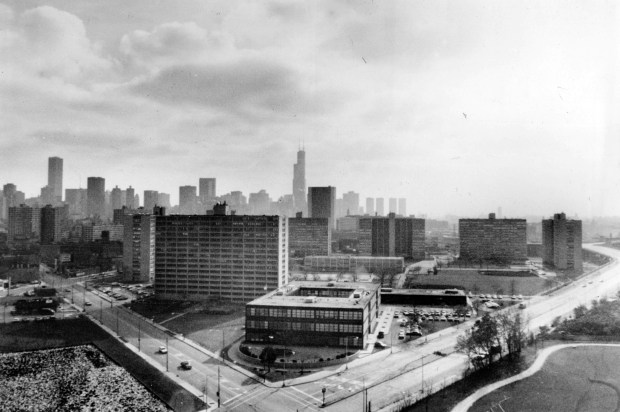
Harris didn’t escape that chaos unscathed. He had a handful of adult criminal convictions beginning at 19, including theft, possession of marijuana and a 1987 burglary. He received a three-year prison sentence for that crime but was paroled after about 16 months, in late May 1989.
Three weeks later, in the predawn hours of June 18, armed assailants abducted Feitler as she returned to her Near North Side apartment building.
Feitler, who was to start graduate school at the University of Chicago the next day, was forced at gunpoint to walk to an ATM. She made two withdrawals totaling $400.
Shortly afterward, a passerby spotted her unconscious body in an alley. Shot once in the back of her head, Feitler languished in a coma for three weeks before dying on July 9.
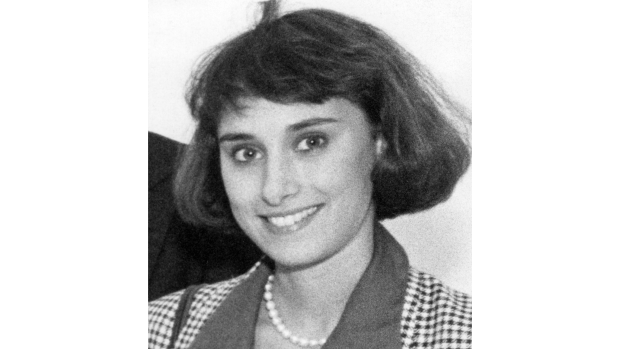
The case attracted national media attention, and police faced mounting pressure as months passed without an arrest. Feitler’s family offered a $25,000 reward.
Detectives initially had few clues. Surveillance footage from the bank showed only Feitler, not her assailants. But a few witnesses soon stepped forward in response to media coverage.
One man said he saw three Black men that night acting suspiciously in a white car parked near the site of the crime. A woman reported seeing someone she believed was Feitler walking with three Black men that night. The witness, who was walking her dog at the time, said Feitler had made lingering eye contact with her. One of the men had a limp, she said.
Police showed photos and a live lineup of suspects to the dog-walking witness. She identified the same man both times, but he denied involvement and his girlfriend provided him with an alibi. He was never charged, though he did have a distinctive gait, thanks to an earlier shooting injury, that was similar to the limp the witness had described.
With the two witness descriptions, detectives focused their search for suspects on the nearby Cabrini-Green neighborhood where Harris lived. At the time, he was friendly with two police officers assigned to Cabrini who used him as an occasional informant. And so, Harris has said, he thought nothing of it when the patrol officers spoke to him about the attack on Feitler.
Harris would have more than 20 conversations with police over the next few months. Initially, he implicated other men. But in mid-September 1989, prosecutors refused to approve charges against the police’s main suspect based solely on Harris’ statements. According to his attorneys, Harris himself then became the target of the police investigation.
Hollis, more than a decade older than Harris, had looked out for him for 20 years. He attended school events when Harris needed a parent and stood up as Harris’ best man at his wedding. He said Harris was a petty thief at worst who made up stories to please others or appear important.
Hollis said he recalls Harris bragging at the time about reward money, but he had no idea what a dangerous game Harris had been playing with police.
Beyond a reasonable doubt?
Four months after Feitler’s murder, prosecutors charged Harris with aggravated kidnapping, armed robbery and first-degree murder. No one else was ever charged.
Jermaine Harris said that while he can’t recall the circumstances of his dad’s arrest, he does remember that his parents, especially his mother, protected him from what was happening.
At the time, he did not live with his father, who in 1989 was married to another woman. “My mom did a great job of not letting this be too much for me,” Harris said. “She’d say, ‘Go be a 7-year-old kid. These are adult problems.’”
One day after Lee Harris’ arrest, police called the dog-walking witness back into the station to view a lineup that included Harris. The witness said she was almost certain, but not positive, that one of the men she saw with Feitler was Harris.
The other witness – the man who reported seeing the white car – testified that he did not identify Harris in a police lineup.
A key prosecution witness was a jailhouse snitch named David Toles, who testified that Harris admitted he was the triggerman while Toles and Harris were playing cards.
Defense attorneys challenged the convicted felon’s credibility and noted prosecutors had reduced his felony burglary charges to misdemeanors after he told authorities about the alleged confession.
The version of events that Toles said Harris provided, in which the victim was shot in a car, did not fit Harris’ statements to police or the female witness’s account.
Authorities never recovered the murder weapon and had no physical evidence linking Harris to the crime. Their strongest evidence against him was his own words, collected over the few months he was talking to police.
Harris initially told them he witnessed three men run out of the alley as he sat in a coffee shop near the crime scene. After police noted that it was impossible to see the alley from that location, Harris said he was actually outside.
In his final statement to police, Harris said he happened upon Feitler and her abductors on the street and followed them into the alley in hopes of getting some robbery money.
During his trial, prosecutors told the jury Harris provided police with details only the killer would know, including the exact location of the alley where a wounded Feitler was found.
His defense team noted the inconsistencies in his statements. They argued police coached him about key details and Harris repeated what they wanted him to say – in part to try to get the reward money but also because they had been financially supporting him for months.
Several officers testified they had provided housing, food, cash and other assistance to protect their informant from possible retaliation in Cabrini because of his cooperation with police.
A jury convicted Harris of all charges in March 1992, after about four hours of deliberations. Prosecutors sought the death penalty, but a judge instead meted out a 90-year prison term.
Harris did not testify at his trial. At his sentencing, his attorneys read a statement from him in which he said he was sorry for the Feitler family’s “tragic loss” but that he “had no part of it.”
Feitler, who grew up in a Milwaukee suburb, was unafraid of city life, her relatives said at the time. Her family later became active in anti-gun violence advocacy work in her memory.
“We will always miss Dana,” her dad told reporters after the verdict. “We will always have this loss.”
An unlikely friendship
Nearly a decade into his incarceration, Lee Harris got a new cellmate at Joliet Correctional Center, a now-closed maximum-security prison about 50 miles southwest of Chicago.
The two had little in common. Robert Chattler was more than 20 years younger than Harris. A white kid in his 20s who grew up in a Jewish family in an affluent suburb, Chattler’s crimes – burglary and drug possession – were not of a violent nature. His stint in prison would be brief.
Harris, who didn’t smoke but kept cigarettes as currency, offered his new cellmate one and then eventually the whole pack. Chattler didn’t have many privileges, and so Harris arranged it so the younger man could phone his family and get snacks and other items from the commissary.
Chattler said Harris’ outgoing personality made him popular among inmates and prison guards. “He looked out for me,” Chattler said.
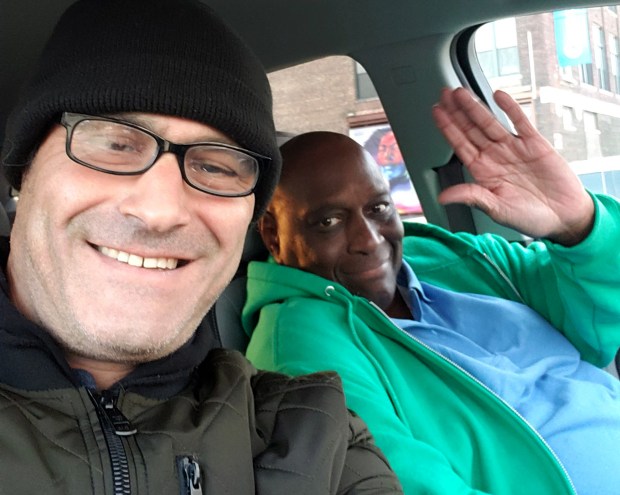
But the two didn’t room together long. Chattler admits his chain smoking and taste in music “annoyed the hell” out of Harris, who Chattler suspects complained and got him moved into a nearby cell where smoking was permitted. But Harris continued to check in on him, especially when Chattler’s sister died unexpectedly from viral encephalitis.
“He was a people person,” he said of Harris. “He’d always get involved if someone was down or needed something.”
One of the few times Chattler can recall Harris in a bad mood was the first time the two spoke about his conviction. Harris accused police of framing him.
“Being who I am, this suburban Jewish kid who had nothing but proper interactions with the police, including the one I was arrested for, I was like, ‘Yeah, right. That doesn’t happen. It’s impossible,’” Chattler said.
He didn’t share his doubts with Harris. Instead, Chattler promised to try to help some day. A short time later, state corrections officials moved Chattler to a minimum-security prison to serve out the remaining months of his sentence. As he left the Joliet prison, Chattler said, he stopped by Harris’ cell to say goodbye. He repeated his promise.
He was released in December 2001. With family support, Chattler said he did well. He worked his way up in his father’s advertising business and never returned to the college drug habit that had landed him in prison.
One day, about a year after his release, Chattler began thinking about his old cellmate and the promise he had made. He wrote Harris a letter asking: “Where do I start?”
Harris wrote back quickly. One of the first things Chattler did was find Toles, the jailhouse snitch with a long criminal record who had testified at Harris’ trial. A television journalist helped him track down the man at a Wisconsin jail. Chattler wrote to him, and to his surprise the man wrote back, he said. The two began communicating and Toles, though often cryptic in his responses, which were not dated or signed, was apologetic about Harris.
Chattler said he began to believe Harris might be innocent.
“I felt a responsibility to help him,” Chattler said. “It became my life’s project.”
A long road
In March 2004, Toles reported to the FBI that he had testified falsely against Harris, according to court documents. During a May interview with the Cook County state’s attorney’s office, which took place in a Wisconsin jail, Toles admitted Harris never confessed and that he had lied on the stand at the behest of police.
His recantation was not enough alone to clear Harris, but it did help persuade prosecutors in Foxx’s conviction integrity unit – now called the conviction review unit – to grant Harris’ long-stalled request for forensic testing on the sweatshirt of the man with the odd gait.
The testing, which focused on blood spatter evidence, failed to yield conclusive results linking him to Feitler’s murder.
Chattler, then living in Texas, continued to try to free his friend. He and Harris talked two or three times a week and exchanged letters. Chattler dug into his own pocket to help Harris pay for the calls, special meals on holidays and for his legal needs.
In 2016, attorney Jennifer Blagg agreed to represent Harris. Chattler also had started an online campaign, including a Facebook page and petition drive, to raise awareness and money.
By then, a 2015 investigation published by The Guardian had detailed how Richard Zuley – the lead detective in Feitler’s murder case – had been accused of coercing false confessions through unorthodox and sometimes violent interrogations. It noted that Zuley later worked a stint at Guantanamo Bay, where his interrogation tactics were included in a scathing 2008 Senate investigation into allegations of military torture.
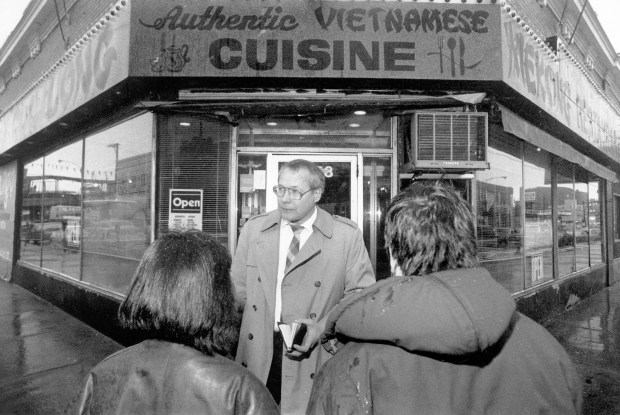
Prosecutors agreed in 2013 to dismiss another high-profile murder conviction that Zuley had been involved in because of constitutional issues raised by the man’s defense. Other police officers involved in Harris’ arrest also were later involved in wrongful conviction cases, sustained complaint investigations and lawsuits, court records show.
A lengthy 2018 feature by the Marshall Project, a non-profit newsroom focused on criminal justice, highlighted Chattler’s efforts and the allegations of police misconduct. Foxx’s conviction integrity unit had again started to investigate Harris’ case as well.
Among the allegations raised in Blagg’s court filings was that police falsified some reports to fit facts in the case. Blagg noted instances when the detectives’ general progress reports differed from official versions. In some cases, she said, a new detail emerged with suspicious timing.
One example concerned the victim’s Tiffany watch. Months after the murder, Feitler’s mother called police to report the family had noticed her daughter’s watch was missing. Blagg said police shortly thereafter indicated for the first time in reports that Harris had mentioned the watch, saying one of the assailants had taken it during the robbery.
Issues also arose related to the lineup where the woman walking her dog had tentatively identified Harris as one of the assailants. That witness told the conviction integrity unit in 2018 that she’d seen a Black man at the police station a couple of times back in 1989. Harris’ attorneys argued that it was Harris, who’d been cooperating with police, and that the lineup was therefore tainted.
In her interviews with the conviction integrity unit, the woman also denied a police officer’s claim that, as he drove her home after the 1989 lineup, she told him she was positive it was Harris she saw with Feitler. Blagg said she was not made aware of the interview statements until 2022, an alleged violation of Harris’ rights.
Police made Harris their “sacrificial lamb” after prosecutors declined to approve charges against a man Harris had implicated, Blagg argued.
“It also defies reason that Harris would go from being the prosecution’s star witness, being compensated for his meals and housing, to being the only person charged with the crime after (prosecutors) refused to charge CPD’s target,” Blagg said. “The only answer to how this happened is that there was a complete and total failure of our justice system.”
Blagg has suggested the man with the odd gait is the real killer, but he has never been fully investigated. Forensic testing on that man’s sweatshirt in more recent years showed evidence of gunshot powder residue, according to court documents.
The Chicago Police Department declined to comment for this story, citing Harris’ pending lawsuit. Zuley’s attorneys did not answer a Tribune request for comment. In a response to the lawsuit, filed Thursday in federal court, attorneys representing the city and the individual officers denied wrongdoing and said Harris’ arrest was based on “police department reports, court documents and (Harris’) oral statements.”
Finding a way
Jermaine Harris said his dad remained a constant presence despite his incarceration, through phone calls, letters, cards and prison visits.
“I would talk to him on the phone four or five times a week,” he said. “My dad would help me with my homework. I got a birthday card every year of my entire life. He would always find a way.”
He said he never doubted his father’s innocence.
“Not once,” he said. “I know he wasn’t always a saint. He told me how he did dumb stuff when he was young.” His father admitted he lied to get the reward money, Jermaine said.
“He told me (police) hung X amount of dollars over his head and he thought that’s the fastest way he could get us all out of the projects,” he said. “He said he trusted these people and it came back and backfired on me.”
He said his father never gave up hope he would one day be free, and so neither did he.
Lee Harris finally won his freedom March 16, 2023. His son brought T-shirts featuring a photo showing the two of them hugging, taken when the younger Harris was in middle school. The shirts read: “Together again.”
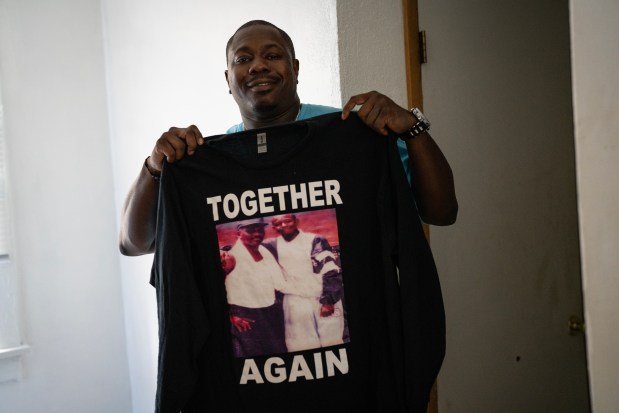
Standing before reporters, Harris thanked his supporters – especially Chattler, who flew in from Texas.
“If everyone had a friend like this,” Harris said, “this world would be such a better place.”
Hollis, who said he had sent Harris up to $40 a month for three decades of incarceration, also greeted his old friend. They all celebrated that night at Manzo’s Burger in Morgan Park.
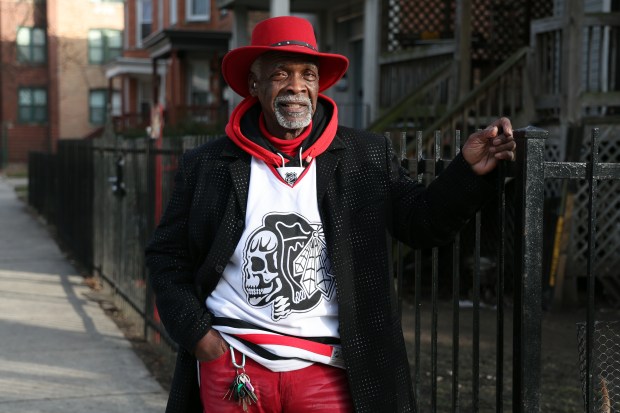
Feitler’s family shared a statement with the media upon Harris’ release. They said members had learned of the development only two days prior. The family noted Harris’ criminal history, confession and the jury’s guilty verdict. The statement said the family is “heartbroken that this epidemic of gun violence remains a horrific plague” decades after their loss.
After leaving Stateville Correctional Center, Lee Harris got busy living. The sports enthusiast attended several Chicago Bulls, Bears and White Sox games. He watched his son play softball. He reconnected with friends, attended concerts and traveled to Arizona, Florida, Mexico and Las Vegas.
Harris stayed with Chattler for about a month at his Texas farm, where Chattler cares for a host of rescue animals. The two went fishing, something Harris had talked about wanting to do if he ever got free. Back in Chicago, Harris lived with a niece on the city’s South Side and volunteered at church, relatives and friends said.
But his re-entry wasn’t easy. At times he slept on the floor because his mattress, compared with his prison bed, was too soft. He struggled with public transportation and once ended up at an airport rather than the sports store he was trying to reach.
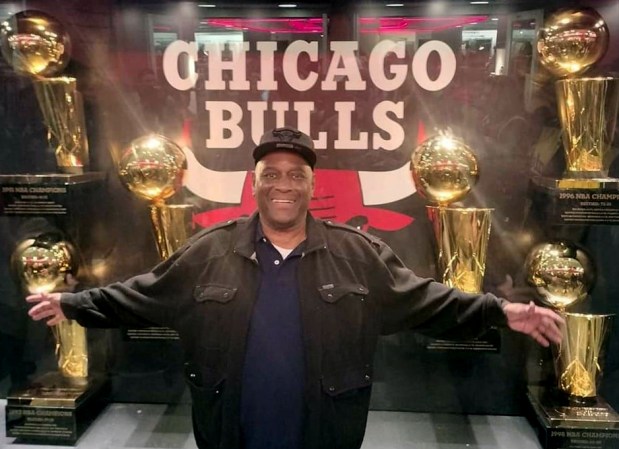
And, according to his loved ones, he was afraid of the police and struggled with trust. Harris had health problems, including heart issues, high blood pressure, diabetes and chronic obstructive pulmonary disease. His son said Harris was repeatedly hospitalized after his release from prison.
In July, he began dating Rhodena Arnold, whom he met through his niece. She said he shared his life story with her during their first date at Navy Pier.
“I loved Lee,” she said. “If you knew Lee, you would have loved him too. There was never a dull moment being with him. He never wanted to disappoint anyone.”
But Arnold also noticed the times Harris was struggling.
“When I met Lee, he didn’t know what to do with himself,” she said. “He would sit across the street at the church on this bench, and, in his words, he’d say, ‘I have a church behind me and a funeral home facing me.’ He was kind of lost.”
Harris got some help from GRO Community, a mental health center that serves Black and brown boys and men in low-income, high-crime neighborhoods. Harris took part in a 16-week re-entry program that offers individual and group therapy. He also worked a temporary, paid job through the program.
Harris impressed the staff, including when he gave up his spot for subsidized housing to someone else in the program. Kiana Nash, a GRO program manager, said Harris did so well, they were working out the logistics of hiring him to work part time at GRO.
“He always brought a positive perspective to everything,” Nash said, adding: “He was one of our success stories. He wanted to do public speaking. He wanted to inspire youth and others.”
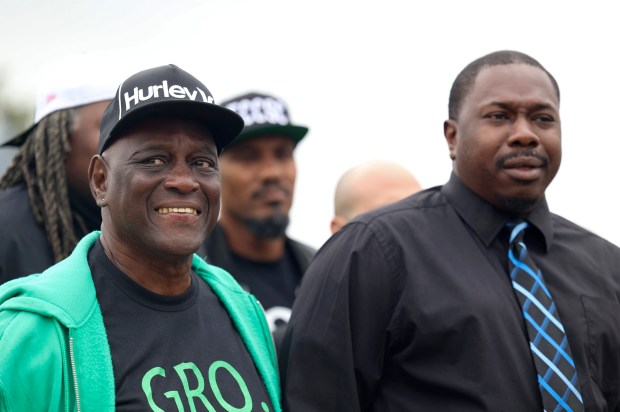
Harris graduated Nov. 6. Weeks earlier, in late September, he had filed a federal lawsuit against the city, naming nearly a dozen Chicago police officers and seeking compensation for his incarceration.
He dreamed of owning a downtown home with a balcony view of the lakefront or moving somewhere warm, like Arizona.
Lee Harris’ first grandchild, Amena Jiraya Harris, nicknamed “A.J.,” was born Dec. 5. They never had a chance to meet.
A final goodbye
Harris celebrated his first Thanksgiving out of prison in Chicago with Arnold. She said she noticed he had labored breathing and was sweating. But he was in his usual good spirits, albeit more subdued.
Hours later, she drove him home so he could get a good night’s sleep. She was so busy cleaning up after her holiday party that she didn’t notice he had failed to call to make sure she had arrived home safely.
Early the next morning, when her phone rang as she was leaving for work, she assumed it was Harris. He phoned her each morning with a trademark, “Rise and shine. It’s time to get up!”
Instead, it was Harris’ niece. She had found his body.
Though heartbroken, Arnold said, “I’m also thankful and grateful that he didn’t die in prison and that he was able to come home for a short period of time to see his family.”
Foxx said she felt “gutted” by Harris’ death. Foxx said she still thinks about the day the two met and swapped stories about Cabrini-Green – and how Harris, with tears in his eyes, hugged Foxx and thanked her.
“Inasmuch as we do this work around wrongful convictions and celebrate people coming home, what Lee’s case reminded me of is how difficult that journey can be,” Foxx said. “His description of how scary the world is shook me because here I was thinking it would be glorious to be out. It made me appreciate that we have a lot to do to make sure that outside feels as free as it should.”
For Chattler, the loss of his friend reverberates still. For decades, he has saved their letters, documenting Harris’ journey to exoneration. They had hoped to share their story of friendship and perseverance in public schools and college criminal justice classes.
“He was my best friend,” Chattler said. “I loved Lee. Next to my mom, I don’t think there’s anybody that cared or loved me as much as he did.”

In a recent statement to the Tribune, members of Feitler’s family pledged to continue their anti-violence advocacy work “so that no family ever has to endure the horror that we have experienced since Dana’s murder, as well as the wounds that continue to resurface when victims and their families are forgotten in the national narrative.”
They said Feitler was a two-sport college athlete who was about to embark on her MBA and dreamed of becoming a hospital administrator.
“We’d like to remember who Dana was and ask that she be celebrated and not forgotten,” the statement read. “Not a day has gone by where the memory of Dana, our beautiful 24-year-old sister, daughter, aunt, and friend, has not been present in our family’s lives. Dana was just beginning her life. She was thoughtful and adventurous – with a real zest and excitement for her future.”
Harris died before he could apply for an official certificate of innocence. As for his lawsuit, it’s unclear how his death will impact its outcome. His son is the executor of his father’s estate.
Jermaine Harris said more than 150 mourners packed his father’s memorial services over two days and dozens more called to offer their condolences.
Wearing his “Together Again” T-shirt, Harris told the crowd he will “forever be proud” to be his father’s son.
“He promised me one thing” while incarcerated, Jermaine Harris told mourners at his father’s Dec. 1 funeral. “He said, ‘They will not carry me out of here.’
“Even days where he couldn’t see the end of the tunnel, he saw the light. It’s that perseverance I want everyone to leave here with. Never give up.”
cmgutowski@chicagotribune.com




